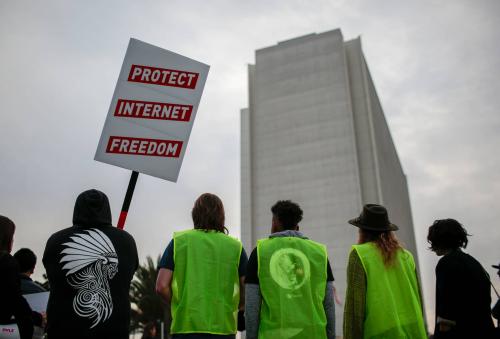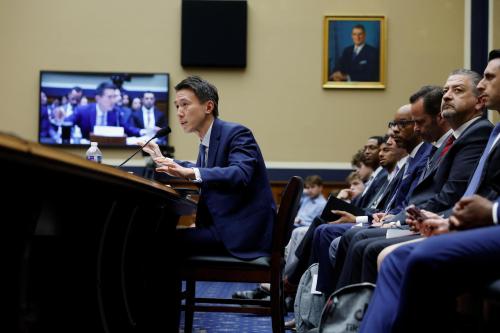Abstract
This brief provides an economic analysis of the main feature of the Copyright Term Extension Act of 1998 (“CTEA”), a twenty-year extension of the copyright term for existing and future works. Taken as a whole, the authors believe that it is highly unlikely that the economic benefits from copyright extension under the CTEA outweigh the additional costs.
Interest of the Amici Curiae
Amici are professors and scholars who teach and write on economic issues and are concerned about the role of government in promoting economic progress. They are George A. Akerlof, Kenneth J. Arrow, Timothy F. Bresnahan, James M. Buchanan, Ronald H. Coase, Linda R. Cohen, Milton Friedman, Jerry R. Green, Robert W. Hahn, Thomas W. Hazlett, C. Scott Hemphill, Robert E. Litan, Roger G. Noll, Richard Schmalensee, Steven Shavell, Hal R. Varian, and Richard J. Zeckhauser. Various amici have taught, researched, and published analyses of the economics of innovation and the effect of government policy on the incentive to create new works. A summary of the qualifications and affiliations of the individual amici is provided at the end of this brief. Amici file this brief solely as individuals and not on behalf of the institutions with which they are affiliated. Amici represent neither party in this action, and offer the following views on this matter.
Summary of Argument
This brief provides an economic analysis of the main feature of the Copyright Term Extension Act of 1998 (“CTEA”), a twenty-year extension of the copyright term for existing and future works.2 An economist’s perspective may be helpful to the Court as it considers Congress’s reasons for passing the CTEA, particularly with respect to the extension for existing works.




